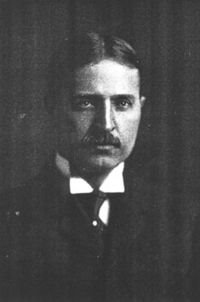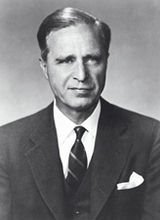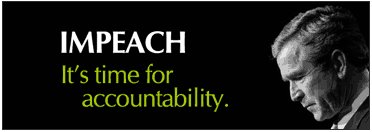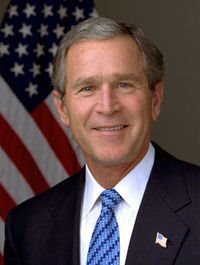
Stop This War
Part ll
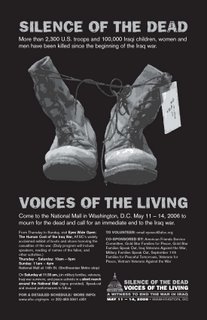



The Open Parachute Film Series sponsored by Cape Codders for Peace & Justice, is now showing a weekly spring film festival at Harwich Community Center at 7:00 PM
Directions: from Hyannis or Boston Rte. 6 to exit 10, left at blinking light Queen Anne Rd. Right on Oak Street across from Harwich High School
This Week on Friday

The CAPE COD ONLY FILM PREMIER of "Sir ! No Sir !" with guest speaker Joe Bangert and perhaps a few US Army veterans just home from the war, will have a few things to say on this war as well !
Come hear the not ready for prime time news! This will not be on CNN, MSNBC, CBS, ABC and certainly not ever on FOX!


"It is with great sadness that IVAW announces the death of one of our own. Specialist Doug Barber, a member of IVAW, recently took his own life after returning from Iraq. A main contributor to his death was the PTSD he dealth with; the same PTSD that originated from the time Doug spent in the war in Iraq. Another contributing factor was the failure of the VA to provide adequate mental care services to heal the wounds of war.
This is not the first time that a soldier has taken his life after returning from the battlefield. Even today, the list of the tens of thousands of Vietnam Veterans who have committed suicide continues to grow. Aiding Iraq Veterans continues to be one of the main goals of IVAW. With your continued support, we will keep up the fight to make sure that returning vets receive the benefits and help they need and deserve."
Below is an article that was written by Jay Shaft, who had spoken extensively with Doug about his experiences. At the bottom of the article, there are links to articles Doug had written and audio interviews he had given.In Memory of Specialist Doug Barber
In Memory and Mourning of the Tragic Death of Douglas Barber
"Today I come to you with a heavy and troubled heart. I have the unfortunate task of giving you some very tragic news. Yesterday afternoon Specialist Douglas Barber, an Operation Iraqi Freedom veteran, took his own life after struggling with the demons and nightmares of PTSD for over two years.
No one really knows what caused his sudden and deadly breakdown. Doug had been on the phone laughing and kidding around with one of his best friends about an hour before the incident. Several friends have said that Doug seemed to be in an upbeat and playful mood throughout the morning, and that he never mentioned any problems.
He was on his way over to his best friend's house to hang out and try to forget about his problems for awhile. Something happened after that which caused Doug to give up and make the decision to take his own life. For some reason Doug decided he could no longer bear the ongoing pain, agony and inner torment.
The Lee County, Alabama sheriff's department was on the scene trying to talk Doug out of it for over 30 minutes. The investigating officer has stated that every effort was made to stop the situation and save Doug's life. Doug apparently turned his back to the officers, fired one shot, and ended his life.
William Wooldridge is a fellow veteran who served in Iraq in 2003. He said that Doug called and left two messages that were playfully making fun of him for still being in bed. William woke up to find one last horrifying message from Doug on his answering machine. He tried to get in contact with Doug's friend and found out it was already too late.
Today I was supposed to publish a positive update to Doug’s case for 100% service connected PTSD with the VA. He had finally achieved a victory in his long struggle and fight to get counseling and medical benefits.
Instead I find myself mourning someone who had become a good friend of mine. Instead of writing Doug's story of hope and courage, I find myself compiling a his final memorial. An overwhelming wave of sadness washes over me as I write this. What was a story of triumph has turned into a tale of tragedy.
I find myself unable to deny a friendship with Doug, especially after we had invested over a month in telling his story of what happened in Iraq and after he came home with PTSD. He was extremely excited and relieved about going through the process of receiving his full disability and medical benefits.
I was helping Doug to arrange his personal account into an outline for book publication. I have spent hours helping him talk out the chapters and to flesh out his story in fuller detail.
As a result of this work I was in contact with him at least three times a day and we spent over 100 hours in contact over the phone. Next week Doug was planning on coming down to visit and to meet me in person.
Even though I was talking to him every day, I was not aware of how close Doug was to a breakdown. Sadly, I will never be able to shake his hand or go out for a beer and just shoot the shit. We were planning on just sitting down, having a normal conversation, and forgetting about all the problems we had shared and discussed.
I spoke to him on Sunday and was prepared to conduct a final interview about the progress in his life yesterday morning. I never spoke to Doug again. I feel such a loss that I cannot begin to comprehend it. One of the last things he said to me was that he was happy to be standing up for all the other vets who were getting screwed by the VA and the military.
Doug had just been awarded a 50% disability with 100% to be awarded within 90 days. After over two years of hell and agony he was finally able to access proper counseling for his PTSD. Sadly it was too little, too late.
He had been denied treatment for so long that he was in an unimaginably horrifying mental state. All the problems that had been buried and untreated for the last two years finally overcame Doug’s ability to deal with it.
He was looking towards a conclusion to his personal war for benefits and treatment. After fighting for over two years, the end of his struggle appeared on the horizon. He repeatedly told me that the clouds of PTSD were breaking up and that he felt the light of day in his darkness and despair. Those were the last words he ever spoke to me.
He hung up in a cheerful and jubilant mood. All he could think about was that the update was coming out today, and everyone would see that a vet could win against the system if he stuck in there long enough. He wanted every vet to know that they could stand up and tell everyone if they had been denied treatment or recognition from the VA.
He kept his hopes up with the thought that he was leading the way for every returning soldier who would follow in his footsteps. The overwhelming public response and support gave him courage and strength when he was at his weakest.
He could see that his story had made a tremendous impact with the public and had resonated to the highest levels of the VA, Pentagon, and Congress. Because of his story and words of truth, hurried investigations have been initiated and VA administrators are now reviewing their policy in regard to the treatment of returning Reservists and National Guardsmen.
Doug may have taken his own life, but the blame should rest squarely on the shoulders of the VA. They stonewalled his claim and prevented him from getting treatment at every step of the way. He struggled for two years to get any type counseling for his problems.
Last year he turned himself in for emergency crisis treatment through the VA. Their response was to give him a counseling appointment every three months and give him medication without any real supervision or follow-up.
Because they did not immediately respond to Doug’s cry for help, his condition was allowed to grow into an insurmountable problem. If they had given him access to therapy and full PTSD counseling and support I doubt his life would have come to this unnecessary end. It was a complete failure on the part of the VA that led to this senseless death of a man who put his life on the line for his country.
They had the ability to step in last year after they knew without doubt that he was in imminent crisis and desperate for help. Instead they stalled him to the point of utter mental breakdown. His pleas for help were ignored and shuffled through the chain of endless paperwork, applications for services and case reviews.
What happened to Doug has happened to thousands of veterans who have returned from the recent conflicts in Iraq and Afghanistan. It is also happening to vets from every previous war.
The VA by its denial of assistance and betrayal of trust helped Doug to reach his final day of desperation. It is their failure to help, not Doug’s reaction to problems he could no longer cope with that needs to be the story behind this tragedy. They must be held accountable for their failure not only to help Doug but the hundreds of thousands of other vets being denied their benefits.
We all must realize that if Doug was getting the proper care and supervision, his problems would have been addressed and a path of healing could have been offered. As it was he got no help until he broke down and took his own life because he had lost all hope of recovery. This should never have to happen to another veteran who has served this country.
I will be releasing an article tomorrow in tribute to Doug’s memory and the truth he helped to expose. He should be remembered as a common man who stood up for his brothers and sisters in arms. His personal views may have caused conflict, but his desire for fair treatment of all vets carried above any political views he had.
I have spoken to Doug’s wife Robin and several of his close friends. I have been in contact with many people who loved and cared for Doug, and his death is not going to be forgotten or ignored. I will be releasing some comments and experiences from Doug’s friends that were in touch with him over the last few days. Please look for a press release to come out by tomorrow evening.
I am also releasing over two hours of audio interviews with Doug so that everyone can hear his experiences recounted in his own words.
As I write this I am listening to Doug’s interview with talk show host Doug Basham conducted on 12/16/05. I sit here with tears in my eyes when I realize how much I will miss Doug’s frank and open honesty. I will miss his desire to stand up and expose the truth for the whole country to see.
I will especially miss his burning and ardent dedication to revealing the facts of how veterans are being denied healthcare and access to proper counseling and treatment.
I am unable to write any more at this time. I find myself really feeling the shock and loss for the first time since I heard the tragic news. I just can’t write any more without breaking down. I join in mourning with Doug’s family and friends. I share the pain of all those who knew Doug and will miss his forthrightness, dedication and honesty."
Jay Shaft, Editor, Coalition For Free Thought In Media
coalitionforfreethoughtinmedia@yahoo.com
Doug’s interview “Iraq took away our innocence” can be read at
http://groups.google.com/group/Coalitionforfreethoughtinmedia/msg/2fe6cd944011c4b5?dmode=source
To listen to a followup to the interview go to
http://sf.indymedia.org/news/2005/11/1722502.php
To hear the interview with Doug Basham go to
http://www.dougbasham.com/12-16-05DouglasBarber.mp3
I published Doug’s last article on the 10th of January. Sadly it will stand as his final thoughts and the last words that were ever written by him.
Please read it if you wish to understand the dedication Doug had to his cause.
Spc. Doug Barber: PTSD - A Soldier's Personal War!
http://groups.google.com/group/Coalitionforfreethoughtinmedia/msg/339447f2ecaef4db
coalitionforfreethoughtinmedia@yahoo.com
Doug’s interview “Iraq took away our innocence” can be read at
http://groups.google.com/group/Coalitionforfreethoughtinmedia/msg/2fe6cd944011c4b5?dmode=source
To listen to a followup to the interview go to
http://sf.indymedia.org/news/2005/11/1722502.php
To hear the interview with Doug Basham go to
http://www.dougbasham.com/12-16-05DouglasBarber.mp3
I published Doug’s last article on the 10th of January. Sadly it will stand as his final thoughts and the last words that were ever written by him.
Please read it if you wish to understand the dedication Doug had to his cause.
Spc. Doug Barber: PTSD - A Soldier's Personal War!
http://groups.google.com/group/Coalitionforfreethoughtinmedia/msg/339447f2ecaef4db
General, your tank is a mighty vehicle.
It shatters the forest and crushes a hundred men.
But it has one defect:
It needs drivers.
General, a man is quite expendable.
He can fly and he can kill.
But he has one defect:
He can think.”
-- Bertolt Brecht
Winner of several Best Documentary awards at film festivals across the U.S., the film tells the little known story of the anti-war movement inside of the military in the words of the GI's themselves. Alternating with historic footage are present day interviews with the veterans. Their candid reflections are extremely relevant to contemporary events at the same time that they provide a needed revision to the distorted and incomplete view most Americans have of the controversial conflict that ended 30-some years ago.
Anne Spear
For more information contact: Anne Spear
Come join us for viewing of documentaries/educational videos in an attempt to broaden our understanding of the world and people around us. Have a date on us.
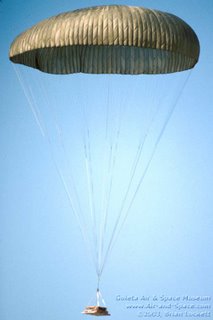 THE MIND IS LIKE A PARACHUTE, IT WORKS ONLY WHEN IT IS OPEN!
THE MIND IS LIKE A PARACHUTE, IT WORKS ONLY WHEN IT IS OPEN!"The universe is wider than our view of it!"
Henry David Thoeau
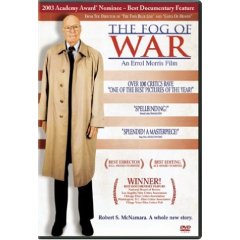 Come see future past feartures like
Come see future past feartures likeThe Academy Award Winner The Fog of War!"
"As in Morris movies like Gates of Heaven and The Thin Blue Line, the filmmaking is meticulous and the ideas are endlessly thought-provoking."
-- David Sterritt, CHRISTIAN SCIENCE MONITOR
"The interviews were filmed a year before the war in Iraq. That so many of McNamara's lessons have come into play imbue The Fog of War with an eerie clarity."
-- Jeff Strickler, MINNEAPOLIS STAR TRIBUNE
"It will knock you for a loop like no other movie this year."
-- Peter Travers, ROLLING STONE
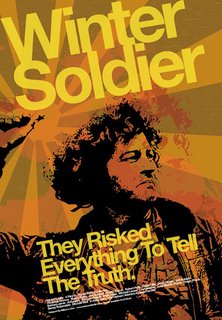 Also Coming Soon! Winter Soldier!
Also Coming Soon! Winter Soldier!
Brewster's Joe Bangert was one of the members of this Winter Film Collective and starred in both of these films as himself, a young angry, man who was mislead by his President, his Country and his moral leaders but for the brave and few exceptions. Sounds not too unlike now!
US Marine Sgt. Joe Bangert, USMC in Viet Nam 1968












